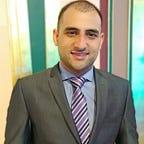Five Things Educators Need to Improve After the Pandemic
In addition to all its known negative consequences, the current COVID-19 pandemic has revealed few gaps in our educational systems. From an educational perspective, I believe that educators and curriculum designers have a couple of improvements to introduce after everything gets back to normal. I will recommend below five topics that need more attention in the future to prepare our students better to face similar circumstances. This applies to K-12 as well as post-secondary educational institutions. It is probably worth-noting that these recommendations are based on simple personal observations, and are hence highly subjective! The five things educators need to improve after the pandemic are:
1- Scientific and Mathematical Literacy: The pandemic has shown that the public lacks to an extent the required scientific literacy. Our students need to know more about how different diseases work and spread, and how simple human behavior (like personal hygiene or social distancing) can make things better or worse. Moreover, real life examples of the connection between maths and science are crucial. Students need to understand how exponential growth and bell-shaped curves work in real life, not only how to draw them for their maths exam. Scientific literacy also includes the appreciation of science and scientists. It is interesting how this pandemic made people trust and value scientists and medical doctors again. Scientists should probably build on this achievement to bridge any gap between them and the society.
2- Financial Literacy: It is sad to see how people were panic-buying stuff they need and don’t need, or panic-selling their shares in the stock market. The real impact of such actions on people will be clearer when people start checking their balances and credit card statements after the crisis ends. Also, many people discovered how bad their financial planning was, and how unready they are to face sudden problems or job disruptions. Accordingly, financial literacy is a competence that needs to be further emphasized in our curricula.
3- Critical Thinking: When you see some people’s rush to buy piles of toilet paper instead of non-perishable food, and when you see others believing any conspiracy theory or any seemingly-scientific explanation or prediction, you discover how important it is to equip our generations with higher levels of critical thinking… Utilizing these skills in the time of disasters is indispensable.
4- Media Literacy: With the great power of social media, our students need to know where and how to spot the correct information, and what to believe or not to believe. Combined with the scientific literacy discussed earlier, people need to know that not any tweet or post is a credible one. They also need to understand the value of responsible behavior on social media. Everyone with a Facebook or Twitter account these days has a social responsibility stopping the spread of rumors or fake news!
5- Empathy and Modesty: This crisis has revealed the nice face of humanity when people stood in solidarity with each other through community service initiatives and support groups. Yet, it has also shown some selfish acts from people or companies who were exploiting the hardship… In these conditions, we need to show more empathy to the more vulnerable people who can’t run or line up directly after the sunrise to get their groceries! With empathy comes modesty… This nanometric substance has proven how weak and fragile we are as humans despite how powerful we think we are! A virus was able to put everyone in isolation, stop flights, and disrupt everyone’s businesses and personal plans! We better exhibit some modesty, admit our flaws and limitations, and teach this to our students.
Teachers are busy nowadays figuring out distance learning solutions and resources. I’m sure they will do a great job in this! Yet, we need to start looking ahead, hoping that everything will be fine soon!
